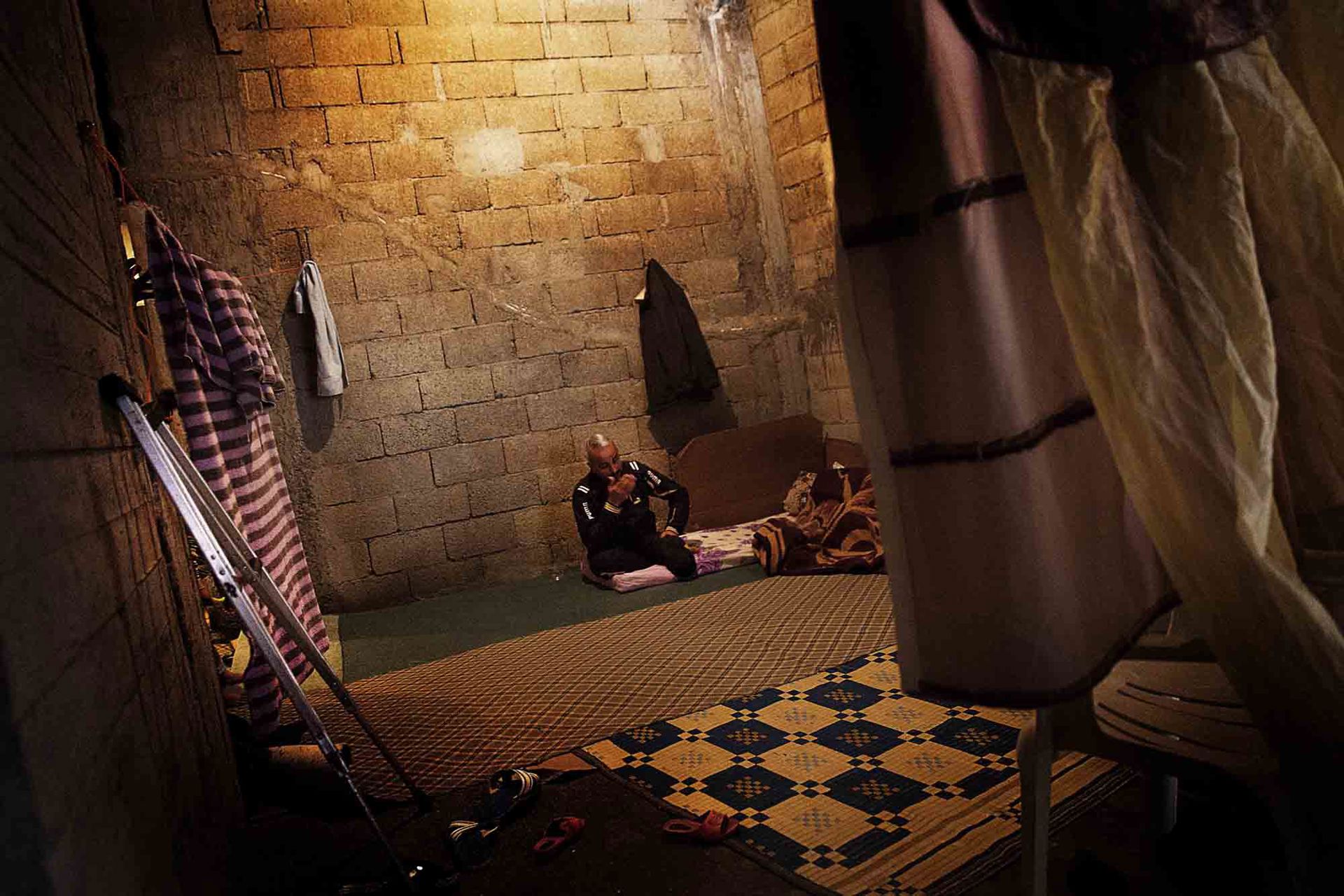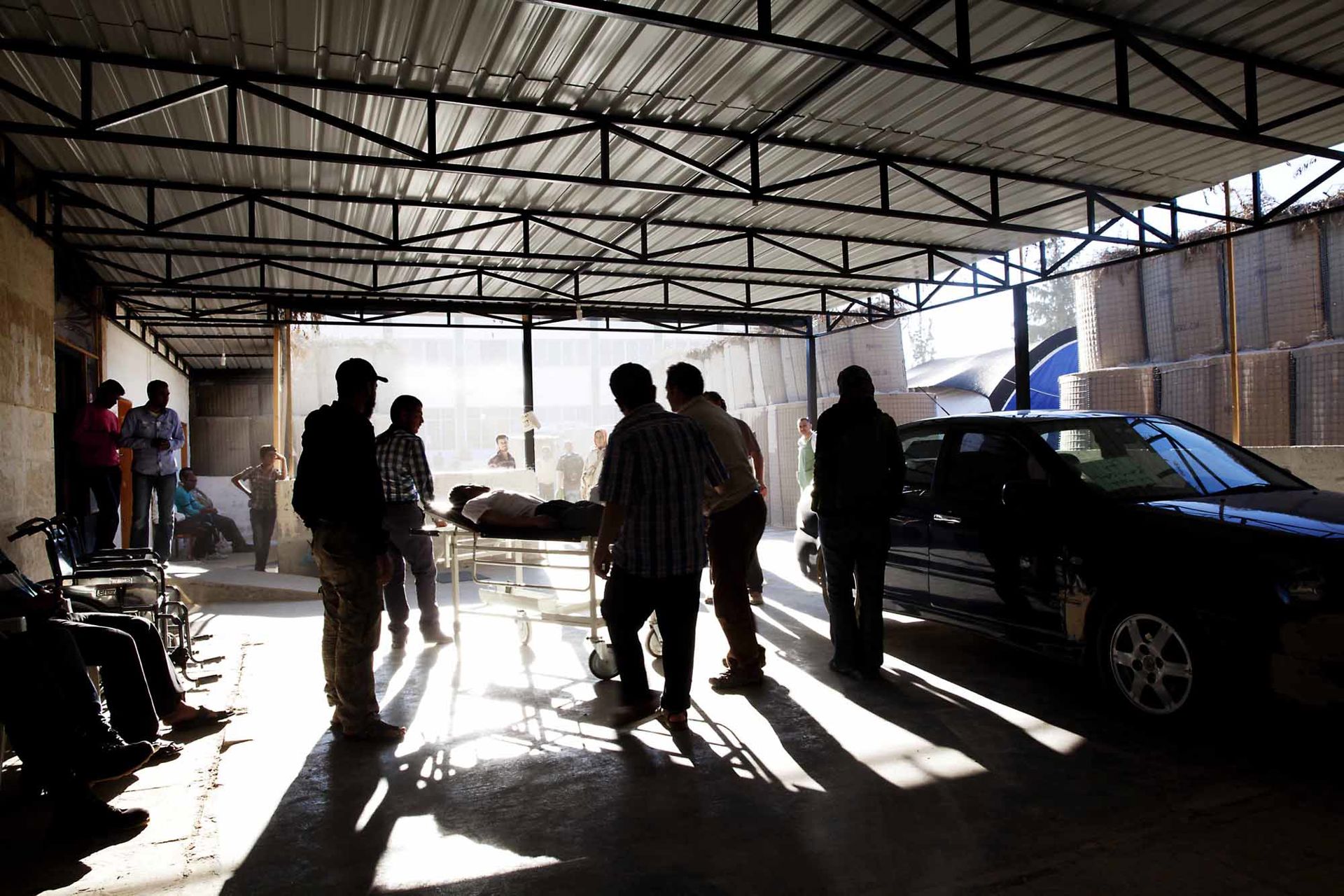Syrian refugees in neighbouring Turkey may have evaded the guns and missiles, but there is no escape from the physical and emotional scars of the conflict
Ahmed BEIDUN displays his medical certificate while his son plays on the floor nearby. Ahmed lost his left foot during an airstrike in Aleppo, and this document, which proves the seriousness of his injuries, was what allowed him to cross the border that separates Syria from Turkey. He and his family arrived in the Turkish city of Kilis with little money and nowhere to stay. When a local Turkish man heard of Ahmed’s predicament, he offered his garage as a temporary home.
“The Turkish people have been very generous to us,” says Ahmed.
The airstrike on Aleppo, the main city in northern Syria, changed Ahmed’s life. “There were three missiles,” he remembers. “My cousins took me first to the main hospital in Aleppo, but it was overcrowded, and I was afraid to be in a public hospital, because I am from a village controlled by the rebels. Eventually, I was taken to a private hospital where they amputated my left foot.”
After the surgery, Ahmed persuaded his extended family to flee Syria for Kilis, the first stop for many refugees heading north.
Mats, blankets and dishes are piled up on the garage floor. Clothes hang from a rope that divides the living area from the improvised kitchen with its portable stove and plastic containers. Ahmed is hoping to find space in a refugee camp, but so far this gloomy garage is the only shelter he has been able to find. Ahmed and his family share the garage with Ahmed’s two cousins and their wives and children – a total of 16 people crowded into a space of just 50 square metres.
More than 380,000 Syrians have taken refuge in Turkey. The majority – some 350,000 – are registered, giving them the right to live in the refugee camps run by the Turkish Red Crescent. The remaining 30,000 are either waiting for registration, or have decided not to register so as to have the freedom to move on to other parts of Turkey.
“Lots of people cross the border illegally,” says MSF nurse Alison CRIADO-PEREZ. “They come with little money. For them it is difficult to find a place to live if they are not inside the camps.” Alison works in a clinic run by MSF in Kilis where most patients are refugees living outside the camps. “Medical care is a pressing need,” she says.
Many of the clinic’s patients crossed into Turkey without identity documents because their passport had expired or had been lost in the chaos of the conflict.
“It’s very dangerous,” says one young Syrian, who has made his way several times through the fields of olive trees that crowd the border. “You are at risk of getting shot.”
Whatever their economic situation, and wherever they are living, all of the refugees in Turkey have witnessed the collapse of their former lives and face an uncertain future.
“My business was going well,” says one Syrian man, recalling the furniture showroom he owned and his visits to Istanbul and Athens in search of inspiration for the design of minibars and bedroom decor. Now his showroom is in ruins, destroyed by a tank, and he is unemployed. “I miss life before the war,” he sighs.
Crossing the border to Turkey was not the end of these Syrian refugees’ troubles, but the beginning of a tough process of emotional recovery. For the seriously wounded or those who left relatives behind in Syria, the process is particularly hard.
Most of the refugees are women and children, testament to the number of families who have been divided by the war.
Psychological care is a vital part of the recovery process. Sonya MOUNIR, manager of MSF’s mental health activities in Kilis, heads a team of psychologists whose aim is to help Syrian refugees cope with the present and look forward to the future. “Our main goal is to help them adjust to the new situation,” says Sonya. “To make them able to live, to have some hope, some ideas, some dreams.”
For Ahmed, all this lies ahead. Soon he will leave the garage to live in decent conditions in a Turkish refugee camp, but his crutches, leaning against the wall, are a reminder that he will also have to come to terms with the Aleppo airstrike and a future with a serious disability. When asked about his hopes for the future, Ahmed is lost for an answer. Then he says, “I want a new foot. I have lost my foot and I can’t work. Before I used to play with my son, but I can’t do that anymore.”



